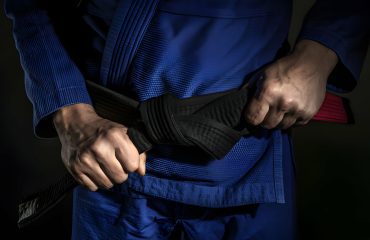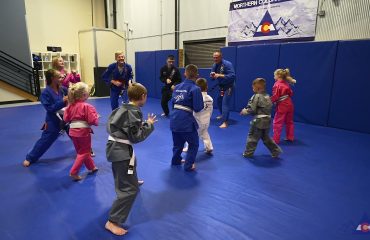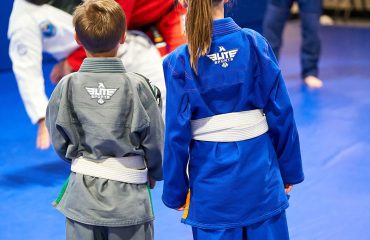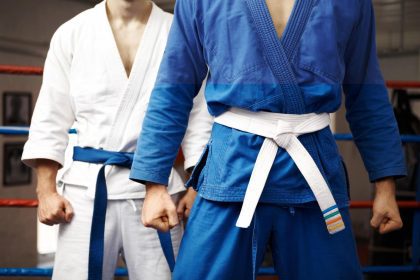
When it comes to choosing a martial art, the decision can often feel overwhelming. Among the many styles available, Jiu-Jitsu and Karate stand out as two of the most popular martial arts. But what sets them apart, and how can you decide which one is right for you? At NOCO Jiu Jitsu and Self Defense, we understand the importance of making an informed choice, and in this article, we’ll explore the key differences between Karate and Jiu-Jitsu to help you on your adventure.
Understanding the Origins and Philosophy
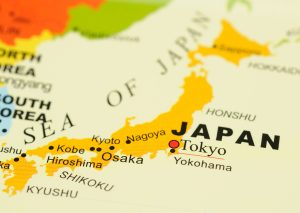 To differentiate between Jiu-Jitsu and Karate, it’s essential to recognize their roots and fundamental philosophies. Originating in Japan, Jiu-Jitsu is a grappling art focused on ground combat and submission tactics. It emphasizes controlling and neutralizing much larger opponents by leveraging technique rather than strength, making it an excellent choice for those looking to defend themselves against stronger opponents. Modern adaptations, such as Brazilian Jiu-Jitsu (BJJ), have made the art highly effective in self-defense and sports settings.
To differentiate between Jiu-Jitsu and Karate, it’s essential to recognize their roots and fundamental philosophies. Originating in Japan, Jiu-Jitsu is a grappling art focused on ground combat and submission tactics. It emphasizes controlling and neutralizing much larger opponents by leveraging technique rather than strength, making it an excellent choice for those looking to defend themselves against stronger opponents. Modern adaptations, such as Brazilian Jiu-Jitsu (BJJ), have made the art highly effective in self-defense and sports settings.
Karate, in contrast, is a striking-based martial art and has its roots in the Ryukyu Kingdom, now known as Okinawa in Japan, and evolved further in mainland Japan. This martial art is recognized for its emphasis on striking methods, such as punching, kicking, and using knee and elbow strikes. The philosophy behind Karate promotes character building and persistence, centering primarily on striking techniques and upright fighting styles.
Adapting to Modern Contexts
While both Jiu-Jitsu and Karate have deep historical roots, they have adapted and evolved to suit modern contexts. In the world of Jiu-Jitsu, this evolution is evident in the rise of Brazilian Jiu-Jitsu (BJJ), a derivative that places more emphasis on ground fighting and practical self-defense. This modern adaptation makes Jiu-Jitsu not only a traditional martial art but also a relevant and effective combat sport in today’s mixed martial arts (MMA) and UFC arena. Similarly, different styles of Karate have emerged over time, each with its unique focus. Some styles emphasize traditional kata and discipline, while others have adapted to the demands of competitive sports, focusing on speed, agility, and powerful strikes. This evolution demonstrates the dynamic nature of these martial arts and their ability to stay relevant in changing times.
Other martial arts, such as Muay Thai, Taekwondo, Wrestling, and Judo, offer additional perspectives on combat. Each style contributes unique elements, such as grappling, clinch work, or striking, complementing the strengths of Karate and Jiu-Jitsu in mixed martial arts.
Cultural Impact and Global Influence
The cultural impact and global influence of Jiu-Jitsu and Karate cannot be overstated. Jiu-Jitsu has gained international recognition, partly due to its effectiveness in MMA competitions, showcasing the art’s practical application in real combat scenarios. This visibility has led to a growing community of practitioners worldwide, attracted to its technical depth and self-defense applications. Karate, on the other hand, has been a significant cultural ambassador for Japanese martial arts. Featured in numerous films, literature, and media, Karate has captivated audiences globally and inspired countless individuals to take up the practice. The inclusion of Karate in the Olympic Games further highlights its global appeal and recognition as a sport and a discipline. Both martial arts, with their distinct origins and philosophies, continue to leave a profound impact on the world of martial arts and beyond.
Comparing Techniques and Training Styles

The training methods and physical approaches of Jiu-Jitsu vs. Karate significantly vary. Jiu-Jitsu primarily focuses on grappling, fighting on the ground, and mastering submission techniques like holds and chokes. This martial art is recognized for its effective self-defense strategies, instructing learners in managing and subduing adversaries in situations that require close contact and useful for overcoming stronger opponents or those with a size advantage.
In karate, students engage in learning various katas or forms, which are structured sequences of movements that mimic fighting an imaginary opponent. They also participate in sparring (kumite) and fundamental techniques (kihon), honing the accuracy and strength of their strikes. The focus in karate is on keeping a distance from the adversary and employing forceful strikes to incapacitate them. This striking-based martial art helps students refine their ability to attack and defend from a distance, focusing less on ground engagements and grappling techniques.
Adaptability and Versatility in Self-Defense
One of the remarkable aspects of Jiu-Jitsu is its adaptability in various self-defense scenarios. Practitioners learn to defend themselves from different positions, whether standing or on the ground, making it a highly versatile martial art. This adaptability extends to real-life situations, where unpredictability is a common factor. The techniques taught in Jiu-Jitsu, such as joint locks and chokeholds, can be effectively used regardless of the practitioner’s size, making it a popular choice for those seeking practical self-defense skills.
Karate, with its structured approach to combat, offers a different kind of versatility. The emphasis on katas and repetitive practice of movements hones the practitioner’s muscle memory, enabling quick and efficient responses in stressful situations. The power and speed developed through Karate training are beneficial not just in martial arts but also in enhancing one’s overall physical fitness and reaction time. Additionally, the discipline and focus required in Karate practice are skills that transfer well to various aspects of life, including work and personal relationships.
Integration in Modern Fitness Regimes
In the modern fitness landscape, both Jiu-Jitsu and Karate have found their place as effective ways to maintain physical health and mental well-being. Jiu-Jitsu’s dynamic nature makes it an excellent workout, combining cardiovascular training with strength and flexibility exercises. Its problem-solving aspect also provides a mental workout, challenging the brain to think strategically under pressure. Many fitness enthusiasts are drawn to Jiu-Jitsu for these holistic benefits, as it offers a full-body workout while also sharpening the mind.
Likewise, Karate is known for enhancing overall physical fitness. Its demanding training routines contribute to increased stamina, strength, and agility. Consistent Karate practice can result in better posture, enhanced coordination, and greater spatial awareness. For individuals seeking a disciplined and structured fitness regimen that also encourages calmness and concentration, Karate stands out as a perfect option. The combination of physical activity and mental discipline in Karate transcends it beyond a mere martial art; it becomes a lifestyle that fosters both physical health and mental serenity.
Physical and Mental Benefits

Jiu-Jitsu and Karate both provide substantial physical and mental advantages. Practicing Jiu-Jitsu boosts flexibility, stamina, and strength, especially in the core and lower body areas. Additionally, it sharpens problem-solving abilities, as participants are required to continuously strategize and adjust to the actions of their opponents.
Training in Karate is highly beneficial for enhancing balance, coordination, and dynamic strength. It also fosters discipline, respect, and mental toughness. Those who practice Karate frequently talk about the boost in confidence and sense of calm they acquire from engaging in this martial art.
Enhanced Mental Acuity and Stress Reduction
Beyond the physical domain, both Jiu-Jitsu and Karate offer profound mental health benefits. Engaging in Jiu-Jitsu’s complex techniques and strategies significantly sharpens mental acuity. Practitioners often find that the focus and concentration required during training help in reducing stress and anxiety, offering a mental escape from the rigors of daily life. The practice of predicting and reacting to an opponent’s moves in real-time also improves cognitive functions, such as decision-making and reaction speed.
Karate, with its disciplined approach and repetitive practice, provides a meditative experience. This repetition, while enhancing muscle memory for various techniques, also aids in calming the mind and reducing stress levels. The process of learning and mastering new katas and techniques in Karate can be incredibly satisfying, providing a sense of accomplishment that boosts mental well-being. Moreover, the emphasis on respect, both for oneself and others, nurtured in Karate practice, fosters a positive mindset and a respectful attitude toward life’s challenges.
Choosing the Right Martial Art for You

The decision between Karate vs. Jiu-Jitsu often comes down to personal goals. If you’re interested in learning how to handle much larger opponents in close-range scenarios or are intrigued by the technical challenges of grappling arts, BJJ may be the right fit. It’s particularly appealing to many parents who value teaching their children effective self-defense while building confidence.
On the other hand, if you’re more interested in developing striking skills, improving agility, and building mental discipline, Karate is an excellent option. Its structured approach to training also appeals to those who value tradition and the aesthetic aspects of martial arts. Both arts offer many benefits, from physical fitness to stress reduction, making either choice a rewarding journey.
In addition to these considerations, it’s also important to reflect on the community and culture of the martial arts dojo you choose. The atmosphere, values, and camaraderie among students and instructors can significantly impact your learning experience. At NOCO Jiu Jitsu and Self Defense, we pride ourselves on creating an inclusive, supportive environment where students of all skill levels can thrive and grow. Whether you choose Jiu-Jitsu or Karate, finding a dojo that aligns with your values and provides a positive, encouraging community is crucial.
Lastly, consider the long-term benefits and skills you wish to gain. Jiu-Jitsu offers a unique set of self-defense techniques that are especially effective in real-world scenarios, teaching control and submission in close encounters. Karate, with its emphasis on strikes and stand-up combat, develops reflexes, agility, and mental clarity. Both arts provide avenues to not just physical mastery, but also personal development, stress relief, and a deeper sense of discipline and focus. Whatever your choice, starting on a martial arts adventure is a commitment to personal growth and lifelong learning.
Both Jiu-Jitsu and Karate have their unique strengths and philosophies. They cater to different aspects of martial arts training and personal development. By understanding the key differences between these two arts, you can make a more informed decision about which path to take. Whether you choose the grappling world of Jiu-Jitsu or the striking art of Karate, each offers a unique and enriching adventure in martial arts. Remember, the adventure in martial arts is not just about physical prowess; it’s also a path of self-discovery and personal growth. At NOCO Jiu Jitsu and Self Defense, we’re here to guide you on whichever path you choose.
Take the First Step Toward Personal Growth and Fitness

Discover the power of martial arts! Whether you’re looking to build confidence, enhance your fitness, or learn practical self-defense, now is the perfect time to start your adventure. Contact us today to learn more about our classes and how you can begin your martial arts adventure!
